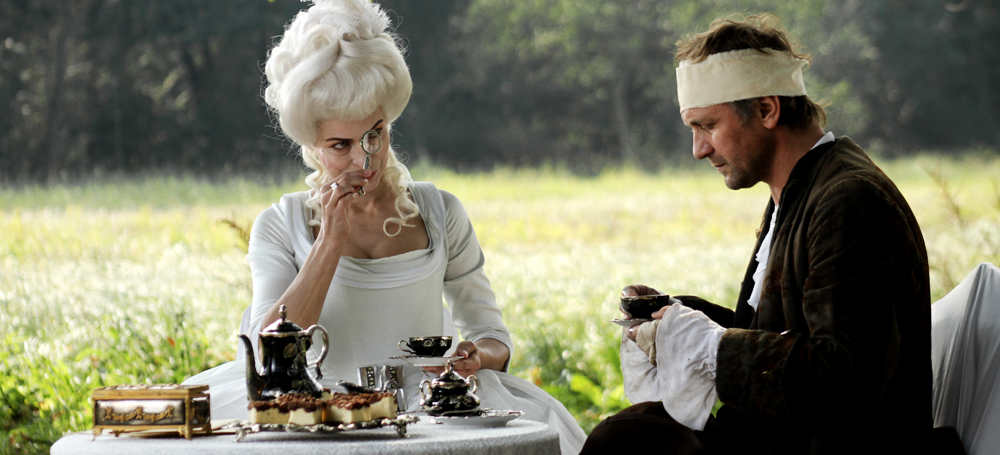Unveiling the Birth of Mutant Supremacy: A Review of "X-Men: First Class" (2011)
Introduction: "X-Men: First Class" (2011), directed by Matthew Vaughn, serves as a prequel to the beloved X-Men film series, delving into the origins of the mutant saga and exploring the early days of Professor Charles Xavier and Magneto. Set against the backdrop of the Cold War, the film chronicles the formation of the first class of mutants and the birth of a conflict that will shape the future of humanity.
Embarking on a Mutant Journey: The film follows the paths of two young mutants, Charles Xavier (played by James McAvoy) and Erik Lehnsherr (played by Michael Fassbender), as they discover their extraordinary powers and grapple with their identities in a world that fears and persecutes them. Charles, a brilliant telepath, believes in peaceful coexistence between mutants and humans, while Erik, a magnetic manipulator, harbors a deep-seated resentment towards humanity and seeks revenge for the injustices he has suffered.
The Birth of the X-Men: As Charles and Erik navigate the tumultuous landscape of the 1960s, they join forces to stop a powerful mutant named Sebastian Shaw (played by Kevin Bacon) from igniting a global conflict that could spell the end of humanity. Along the way, they recruit a diverse group of mutants, including the shape-shifting Mystique (played by Jennifer Lawrence), the energy-absorbing Havok (played by Lucas Till), and the telekinetic Banshee (played by Caleb Landry Jones), to form the first class of X-Men.
A Tale of Friendship and Betrayal: At its core, "X-Men: First Class" is a gripping tale of friendship, betrayal, and the struggle for identity in a world torn apart by fear and prejudice. As Charles and Erik's ideologies clash and their friendship is tested, the film explores the complexities of morality and the choices that define us as individuals. With its rich character development and nuanced storytelling, "X-Men: First Class" offers a compelling exploration of the human condition and the eternal struggle between good and evil.
Spectacular Action and Visual Effects: True to its comic book roots, "X-Men: First Class" delivers on the spectacle with its breathtaking action sequences and stunning visual effects. From epic battles between mutants to high-stakes showdowns with government agents, the film keeps audiences on the edge of their seats with its adrenaline-fueled thrills and jaw-dropping special effects. Director Matthew Vaughn brings a dynamic energy to the film, infusing each scene with a sense of urgency and excitement that propels the story forward at breakneck speed.
Critical Acclaim and Audience Reception: "X-Men: First Class" received widespread critical acclaim upon its release, with critics praising its engaging storyline, strong performances, and impressive visual effects. Audiences were similarly impressed by the film's thrilling action sequences and compelling character dynamics, making it a commercial success and earning it a dedicated fan base among both comic book enthusiasts and casual moviegoers.
Conclusion: In conclusion, "X-Men: First Class" (2011) is a thrilling and emotionally resonant addition to the X-Men film series, offering a fresh perspective on the origins of the beloved mutant saga. With its engaging storyline, strong performances, and breathtaking action, the film delivers a compelling exploration of friendship, identity, and the eternal struggle between good and evil. Whether you're a longtime fan of the X-Men or new to the franchise, "X-Men: First Class" is a must-watch film that will leave you eagerly anticipating the next chapter in the mutant saga.
Witness the birth of mutant supremacy in "X-Men: First Class" (2011), a gripping prequel that takes audiences on a thrilling journey into the origins of the iconic X-Men saga. Join Professor Charles Xavier and Magneto as they navigate the tumultuous landscape of the 1960s and form the first class of mutants to combat a global threat that could spell the end of humanity. With its compelling storyline, stunning visual effects, and powerhouse performances, "X-Men: First Class" is a must-watch film for fans of all ages. So buckle up and prepare to embark on an epic adventure that will leave you on the edge of your seat until the very end!




